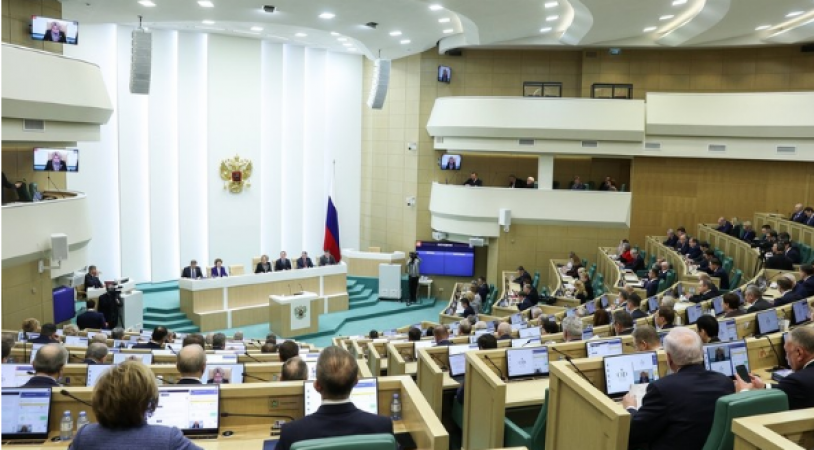
Moscow: A bill requiring all public and private entities to use only Russian words in their official communication has been upheld by Russian senators. The only exception, according to the legislation passed on Wednesday by the Federation Council, is language for which there is no equivalent in Russian.
The bill states that "any use of words and phrases that do not comply with the norms of the modern formal language is not allowed when the Russian language is used as the state language of the Russian Federation," adding that "foreign words that do not have commonly used equivalents in the Russian language and are included in the standard dictionary lists" are an exception.
If the president signs the bill into law, the government will now need to review the list of accepted dictionaries. According to the law, language is used as "official" if it is employed in the fields of education or in state and local government information systems, as well as by private organisations when speaking with clients or partners in business.
The bill's authors claimed, according to Interfax news agency, that it would improve citizens' overall literacy levels, promote proper use of the official language, and guarantee that all public employees have a sufficient command of contemporary formal Russian.
Also Read: Shamima Begum will continue to be incarcerated in Syria
The legislation was approved last week by the State Duma. According to reports, the bill was created to "protect" the language from an excess of foreign words.
At the time, Elena Yampolskaya, chair of the Duma's Culture Committee, criticised the practise of using "giant capital letters" in English on advertisements while making the Russian equivalent hardly legible.
Also Read: High-ranking official asks Scholz to "stop" the German foreign minister
After the law is passed, she insisted that new regulations for the media, advertising, and consumer information should be created. Yampolskaya also urged her fellow lawmakers to take into account making it an administrative offence for people to use the state language improperly.